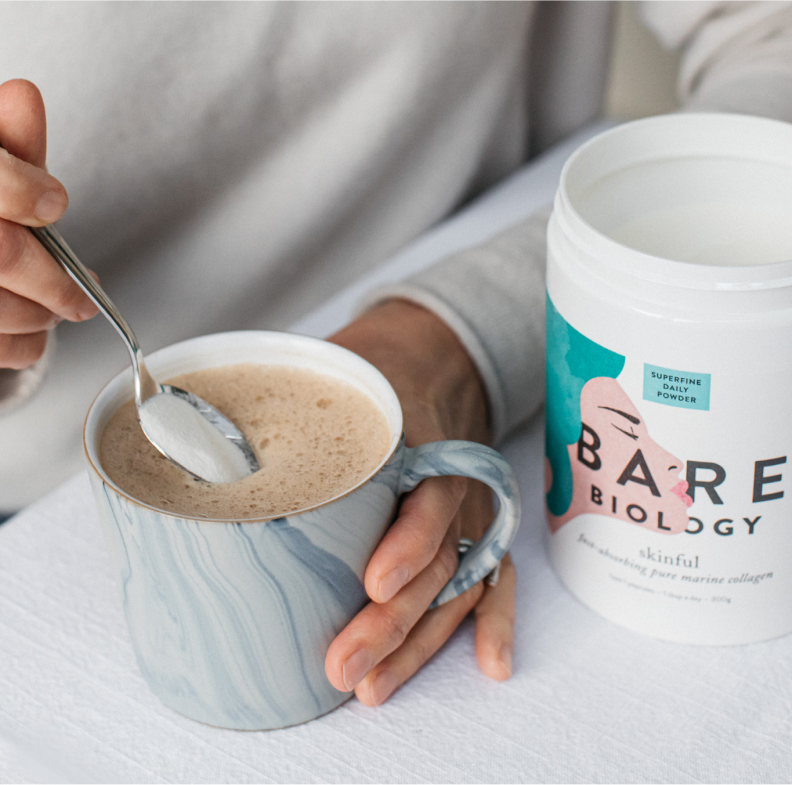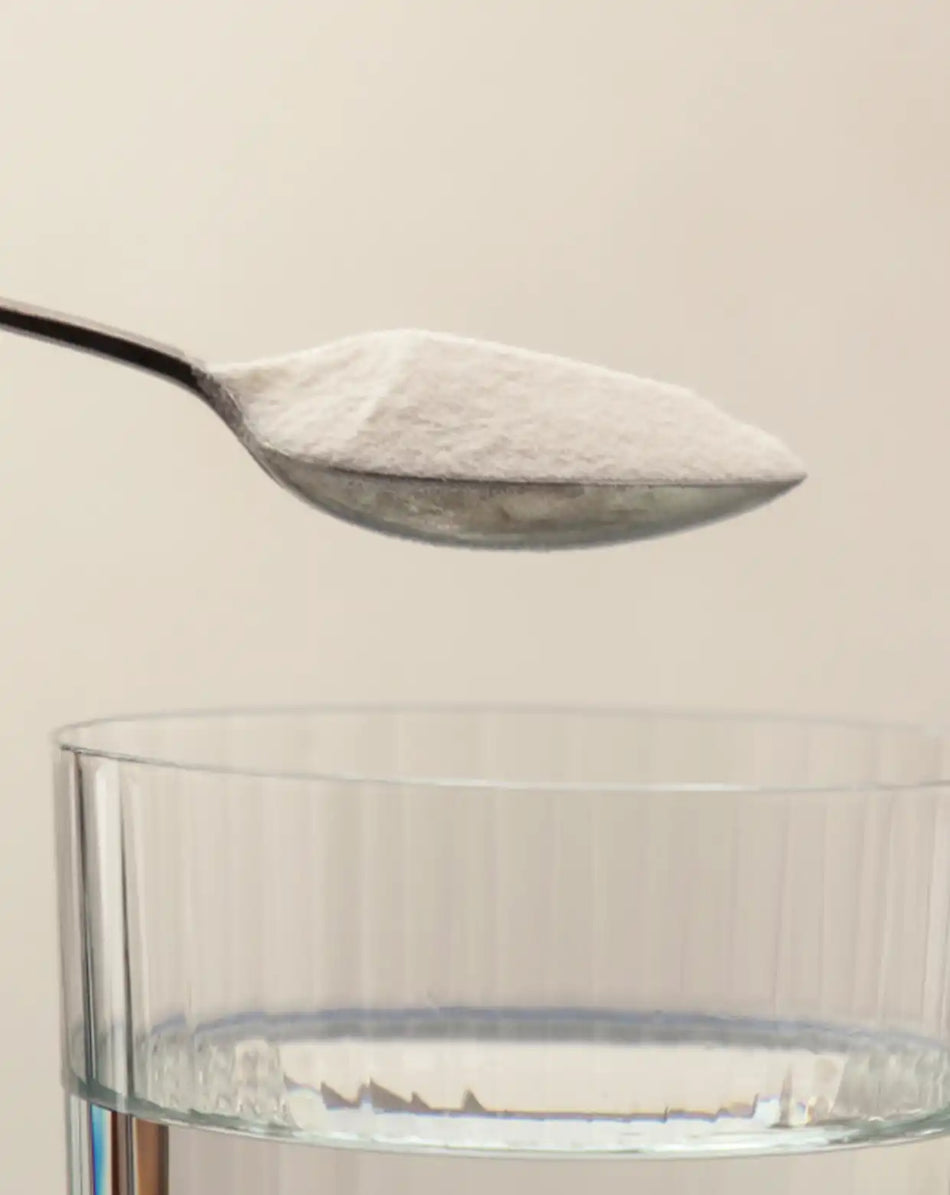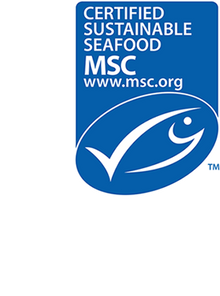What to look for in collagen powder and how to read the label
CONTENTS
Pure, strong and tested for contaminants. Highly bioavailable and brimming with amino acids. Made from sustainable wild fish, never farmed. Palatable and easily digested. At Bare Biology, we have a long list of reasons why we think Skinful is one of the best collagen protein powders you can buy. But we know we’re not the only product on the shelves. These days you can buy collagen powder in liquid sachets, tablets or capsules. It’s even available combined with other nutrients like coconut oil or with added fruity flavourings. With so many different collagen products out there all vying for your attention, how can you find out which one is right for you?
Learning how to decode the label on your collagen supplement will help. We’ll point out all the information you need to help make an informed decision before you buy.

What to look for in your collagen powder
Collagen powders contain either type 1, type 2 or type 3 collagen. You can also get a supplement that contains all three types of collagen (normally called multi-collagen and made by combining chicken and bovine sources together) or just type 1 and 3 combined (as in bovine collagen powder). The type you choose will depend on which body benefits you were hoping to achieve.
Type 1 collagen
Type 1 collagen makes up 75 to 80 percent of the collagen in the skin’s dermis. That’s why, if you’re looking for a collagen powder specifically for your complexion, make sure the label says type 1. Type 1 collagen is abundant in marine supplements such as Skinful Pure Marine Collagen Powder, but you’ll also find it in smaller amounts in bovine collagen powders.
Type 2 collagen
Type 2 collagen makes up the majority of the protein molecules in your cartilage and you should choose this type if you were interested in maintaining the health of your joints. In supplement form it’s made from chicken cartilage.
Type 3 collagen
Type 3 collagen is found in large quantities in the intestines and as such, it is thought to be useful for gut health. You’ll find type 3 in bovine collagen.
Related Products
Amino acid profile
Collagen peptides have a unique amino acid profile to support tissue-building for your skin. If a company is proud of their amino acid profile, they’ll publish it just like we do here at Bare Biology (you can read Skinful’s full amino acid profile here).
If you can’t find this information on the packaging or the manufacturer’s website, you won’t be able to make an informed decision as to whether the collagen it contains will actually work for you.
So which amino acids should you be looking out for? While the full profile will have benefits to the skin, proline, glycine and hydroxyproline are particularly important because your body needs all three for the raw materials to make its own collagen. Human collagen is made almost entirely of these proteins, in roughly the same ratio you find in marine collagen supplements like Skinful. You won’t find them in meaningful amounts in any other foods.
The other important amino acid to be aware of is arginine, because this antioxidant also helps with the production of collagen.
Collagen peptides
Look out for the words ‘collagen peptides’ on the label, rather than just collagen.
Collagen in its intact form contains big, structural proteins that are too large for our bodies to use. To be effective, collagen first needs to be treated with special enzymes to snip its large molecules into shorter amino acid chains called peptides.
Peptides are much more bioavailable because the shorter chains can be easily absorbed into the bloodstream through the intestinal wall.
Marine collagen
From your joints to your bones to your gut, there’s clearly a benefit to be had from all forms of collagen, whether they come from marine or animal sources.
But when it comes to skin, marine collagen wins hands-down. That’s because its amino acid profile is nearly identical to the chemical make-up of the skin itself.
Marine collagen powders are the most abundant source of type 1 collagen. While bovine collagen does contain some type 1, they also contain type 3. That’s great for your gut health, but it does mean you’ll get less type 1 collagen per dose, so it’s not ideal if you were taking collagen purely to support your skin.
Additionally, the peptides in fish collagen are much smaller in size and weight than the molecules found in bovine collagen, making the nutrients easier to absorb.
We’re 100% committed to our collagen peptides powder being as pure as possible. That’s why Skinful contains no synthetic dyes, artificial flavours or unnecessary fillers.


Hydrolysed collagen
When buying a collagen powder, check to see if the label says it’s been ‘hydrolysed’. Hydrolysed collagen is easier to digest, which means you’re able to use all the amino acids it contains.
Hydrolysing turns tough collagen fibres into a silky smooth powder that dissolves effortlessly into your latte. But how does the process work?
First the cod skins are cleaned and soaked in hot water to remove all the fat, then enzymes work to release the collagen. Using high pressure steam, the collagen is broken down into peptides. These are evaporated and sifted until you get a soft, silky powder.
The hydrolysing process we use for making Skinful is extremely gentle, which helps us achieve our impressively low average molecular weight of 3,000 daltons. The low molecular weight gives Skinful its neutral taste and means it dissolves into liquids without any lumps. But most importantly, it makes it easier for your body to absorb the collagen.
Some top name brands only achieve 5,000 daltons, while other commercial supplements can have molecules that are up to 50,000 daltons in size. But many of the biggest brands do not publish this information at all.
Made from wild, sustainable sources
Some brands of marine collagen powder may be made from factory-farmed fish, or fish caught in a way that harms the environment. Look for this information on the label. If a brand is proud of the provenance of its product, it will shout about it.
Many supplement brands don’t even name the kind of fish they’ve used, so you’ve no idea what you’re taking. It’s worth trying to find out. Farmed fish are exposed to growth hormones and antibiotics, while non-farmed larger fish are more likely to harbour toxins.
Bare Biology’s fish collagen powder is sustainably produced from wild-caught, non-GMO cod. Small, wild cod are an excellent source of marine collagen because the skins are low in sodium and they naturally contain fewer contaminants.
Additives and flavourings
A collagen product with flavourings may seem appealing to your taste buds, while the use of additives like bulking agents and fillers will certainly make a product cheaper. But it also means you won’t be getting as much collagen per dose as you would in a product such as Skinful.
Taking collagen flavoured with sugar could also be counterproductive. Sugar is known to damage the skin in a process known as ‘glycation’. When you eat something sweet, the excess sugar is attached to the fats and proteins in the dermis, producing enzymes that weaken both the collagen and its elastin fibres.
We’re 100% committed to our collagen peptides powder being as pure as possible. That’s why Skinful contains no synthetic dyes, artificial flavours or unnecessary fillers.
Tested for purity
When it comes to collagen made from marine sources, a third-party test for purity is no marketing gimmick. It’s the only way you’ll know for sure that what you’re taking is free from contaminants.
It’s a sad fact, but the supplement industry isn’t well regulated. A product may say that it’s pure but if it doesn’t provide you with a full analysis for each batch, you’ll have to take the manufacturer’s word for it.
That’s why it’s important to look for brands that publish all their test results and, even better, gets their products third-party tested for heavy metal residues. At Bare Biology we put purity above all else. We personally know and trust the people who make our collagen. It was the first to be MSC certified, it’s independently tested for purity and they don’t use harsh chemicals to bleach the cod skin. You’ll find the results on the Skinful collagen product page as a downloadable PDF.
Mercury-free
When a collagen brand proudly proclaims that its product is ‘mercury-free’, that can only be a good thing, right?
Well, it’s actually a sign that you should do some further research because it may mean that your collagen hasn’t been tested for other harmful contaminants.
Marine collagen contains only the barest trace of the toxin anyway, both because of where it comes from and the way it’s processed.
Mercury is found naturally in the earth. When we process coal or iron near the ocean, the toxic heavy metal is disturbed and released into the water. Algae absorb the mercury and then the fish eat the algae, taking on a little more mercury every time.
But while that sounds scary, the fish only accumulate mercury in their tissue and organs, because it’s so highly fat soluble. Marine collagen is made from the skin of fish. Fish skins aren’t very fatty so even the raw collagen is pretty mercury-free. Any residual fat in the skin comes out during processing, leaving pure protein. Because manufacturers do not have to make an extra effort to remove mercury, they could all cheerfully claim to be mercury-free. But what about their levels of other heavy metals such as lead, arsenic or cadmium?
If you want to learn more about collagen powder, our guide has all the answers you're after.




